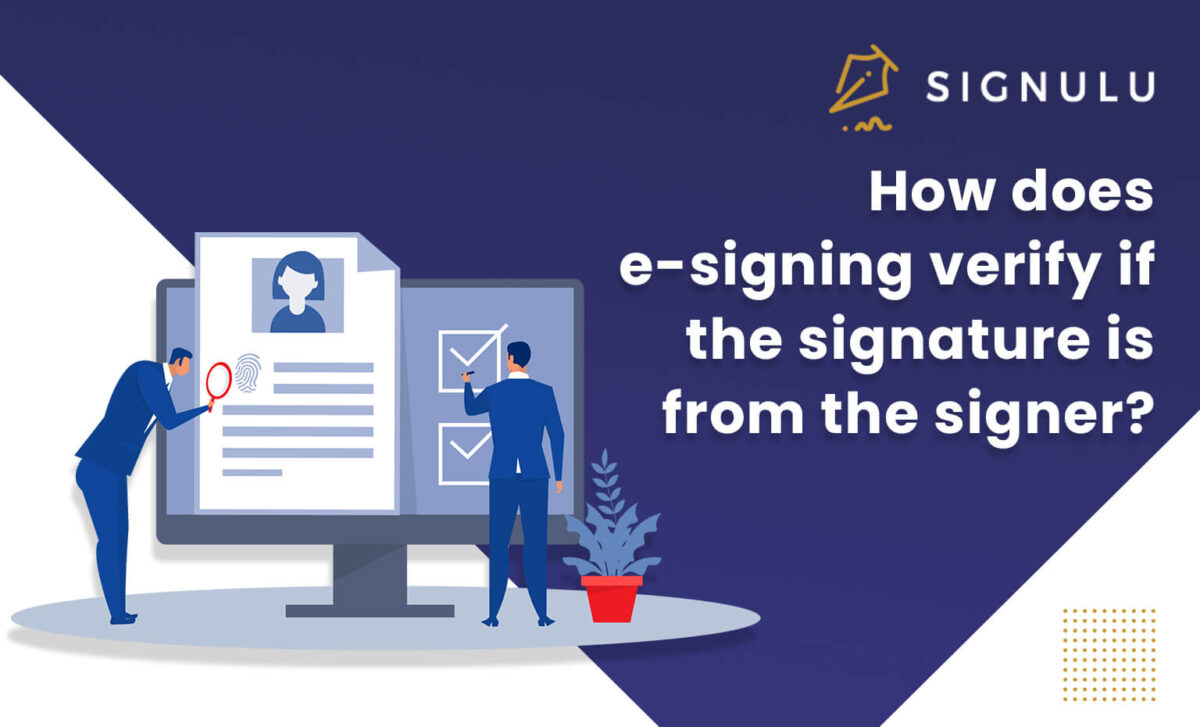The process of verifying an electronic signature, or e-signature, is anchored in the digital signature technology that underlies it. It’s an interesting interplay of cryptography, protocols, and certain principles of authenticity. Let’s break it down.
When you electronically sign a document, the e-signing software applies a digital signature that involves a unique mathematical algorithm. This creates a ‘hash’ of the data being signed, which is unique to both the document and the signer. If any alteration is made to the document after it’s been signed, the digital signature will be invalidated, ensuring the integrity of the document.
Moreover, the e-signature process typically includes a way of authenticating the signer. This can range from an email confirmation, a password, or more secure methods such as two-factor authentication.
Now, let’s talk about how Signulu enhances this process. Signulu employs advanced digital signature technology, creating an efficient and secure e-signing experience. The platform is designed to authenticate the identity of the signer before the signature process, using multiple levels of verification. This ensures that the electronic signature is indeed from the intended signer.
But Signulu doesn’t stop there. It provides a detailed audit trail for each signed document, including who signed it, when they signed it, and the IP address they used. This creates a robust and legally binding record that offers additional assurance of the signer’s identity.
In a nutshell, Signulu not only makes e-signing simple and convenient, but it also adds a solid layer of security and reliability to the process. For more insights into Signulu’s secure e-signing solutions, feel free to explore the website.

